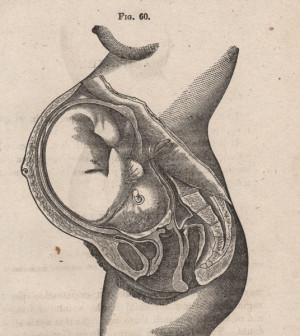- Could Your Grocery Store Meat Be Causing Recurring UTIs?
- Are You Making This Expensive Thermostat Error This Winter?
- Recognizing the Signs of Hypothyroidism
- 10 Strategies to Overcome Insomnia
- Could Artificial Sweeteners Be Aging the Brain Faster?
- Techniques for Soothing Your Nervous System
- Does the Water in Your House Smell Funny? Here’s Why
- Can a Daily Dose of Apple Cider Vinegar Actually Aid Weight Loss?
- 6 Health Beverages That Can Actually Spike Your Blood Sugar
- Treatment Options for Social Anxiety Disorder
Breast Milk Best From the Breast?

Infants fed directly from the breast are less likely to develop ear infections than those who are fed pumped breast milk from a bottle, a new study suggests.
The study also found that infants who receive breast milk by either method have a lower risk of diarrhea.
Researchers studied nearly 500 new mothers and their infants and found that one month of feeding at the breast was associated with a 4 percent lower risk of ear infections. Doing so for six months was associated with a 17 percent lower risk.
But compared to babies were were exclusively fed from the breast, the risk of an ear infection rose 14 percent among infants who were bottle-fed pumped breast milk for one month. And that risk climbed to 115 percent among those who received pumped breast milk for six months, according to the study published recently in the Journal of Pediatrics.
“While it is not completely clear why ear infections may be related to bottle feeding, it could be because bottles can create a negative pressure during feeding. This negative pressure is then transferred from the bottle to the middle ear of the infant during feedings, which may precipitate ear infections,” said senior study author Sarah Keim.
Keim is a principal investigator with the Center for Biobehavioral Health in The Research Institute at Nationwide Children’s Hospital, in Columbus, Ohio.
“We certainly don’t want women to stop pumping because there are not adequate data or guidelines about whether pumped breast milk is an equivalent substitute for feeding at the breast, so more research needs to be done,” she said in a hospital news release.
The researchers also found that infants fed either directly from the breast or with pumped breast milk from a bottle for six months had a 30 percent lower risk of diarrhea, while those fed formula for six months had a 34 percent increased risk.
That result suggests that the type of food, not the method of feeding, may affect an infant’s risk of diarrhea, the study authors said.
They also found that mothers who fed their infants breast milk only were wealthier than those who fed their infants formula, and that women who only used bottles to feed breast milk and/or formula to their infants were poorer than those who fed their infants at the breast.
“This finding is consistent with previous research that shows positive associations between socioeconomic status and breast-feeding. Initiation and duration of breast-feeding may be explained by health care and information resources available to and accessed by mothers of greater socioeconomic status,” Keim said.
More information
The U.S. Office on Women’s Health has more on breast-feeding.
Source: HealthDay
Copyright © 2026 HealthDay. All rights reserved.










